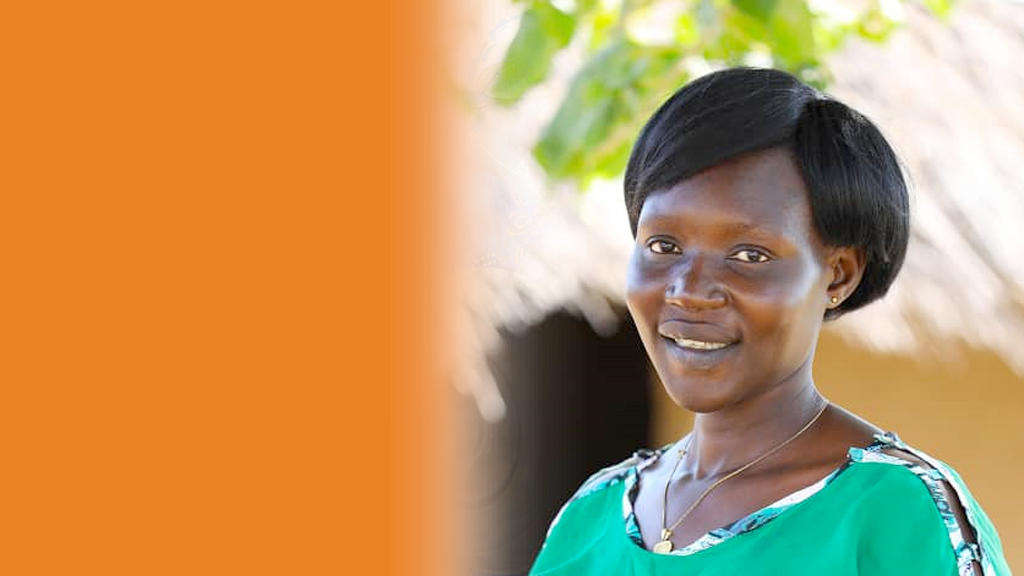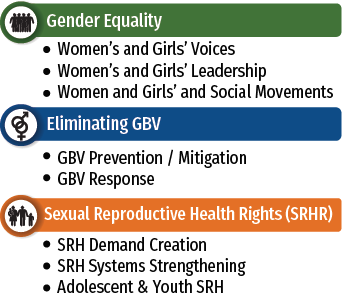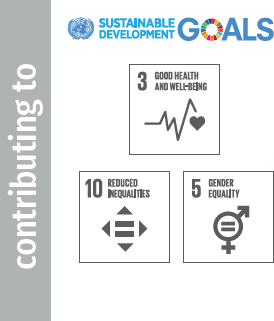
and structural inequalities and
supports women and girls to
enable them to realize their rights.



and structural inequalities and
supports women and girls to
enable them to realize their rights.
Gender Justice Program
Discrimination against women and girls has negative implications for global security and development, economic performance, food security, health, climate adaptation, environment, governance, and stability. We cannot eradicate poverty and achieve social justice while gender inequality persists, and women and girls are denied their sexual and reproductive health rights (SRHR).
to the realization SRHR can be observed across the country, but are more pronounced in emergency settings and the poorest regions. GBV and harmful practices prevent women and girls from full enjoyment of their SRHR.
CARE works to ensure that women and girls experience greater gender equality, live lives free from violence (LFV), and realize their Sexual Reproductive Health Rights (SRHR).
CARE addresses social norms and structural inequalities and supports women and girls to enable them to realize their
rights. CARE applies a twin-track approach to promoting gender equality that combines stand-alone gender equality programming components with gender equality mainstreaming across all program areas, interventions, and partnerships.
As part of this approach, CARE promotes gender equality and equity in civil society organization and social movements such as those representing persons with disabilities, older persons or refugees and at the same time, promotes diversity and inclusion in the women’s movement.


CARE’s global humanitarian mandate shall also come to bear as and when an emergency hits Uganda.
Thank you to all who supported us on this journey, including the untiring colleagues at CARE International in Uganda.


